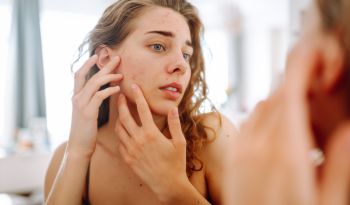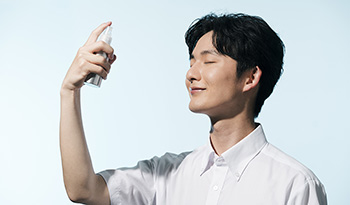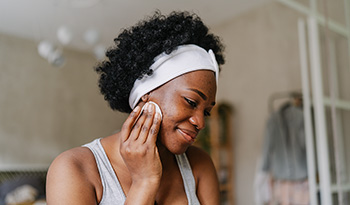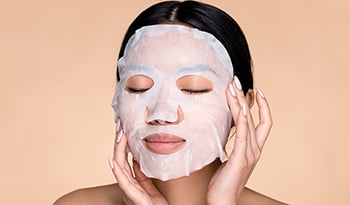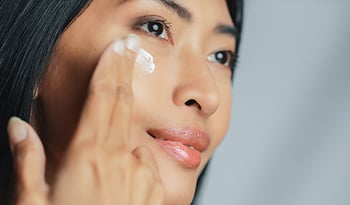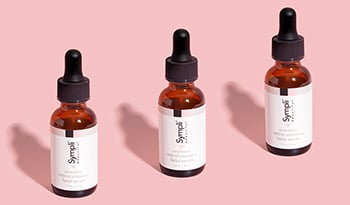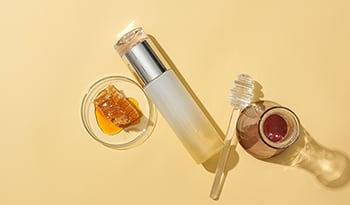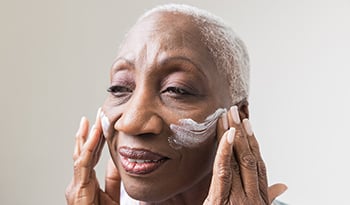Rice Toners for Skin: Discover the Moisturizing and Nourishing Benefits
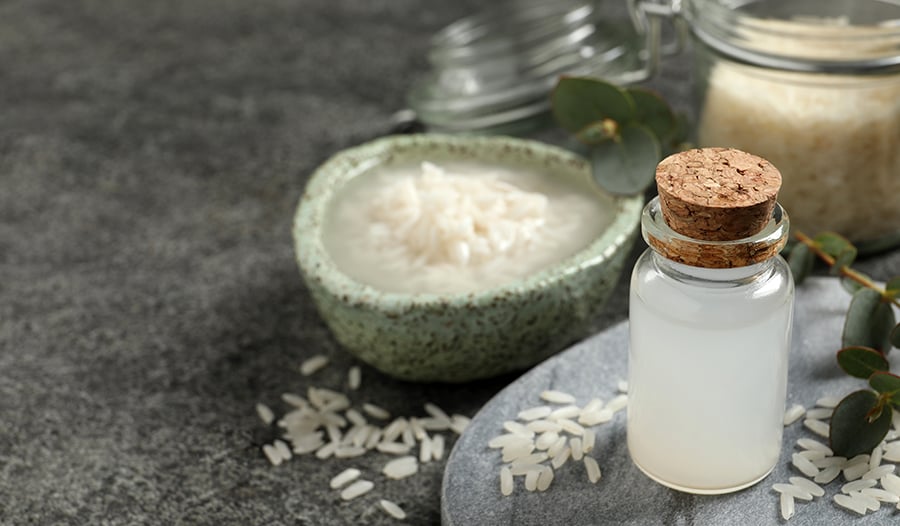
Rice Is a Skincare Staple
Rice, Oryza sativa, is responsible for sustaining half of the world’s population and is a staple food for the majority of the world's population. A total of 95 percent of rice crops are eaten by humans and is a popular main dish and side dish in many Asian and Middle Eastern cultures. Rice is also used in foods such as cereal, noodles, and even alcoholic beverages such as Japanese sake.
Rice has also been used for cosmetic purposes for centuries, and its benefits have been translated into modern-day skincare products. Rice toners typically have a combination of rice extract, solvent, emollient, and fragrance. Specific components of rice have been identified as beneficial to the skin, including phenolic compounds, betaine, squalene, tricin, and rice bran.
Here, we will discuss the top six benefits of rice toners for your skin.
Top 6 Rice Toner Skincare Benefits
Scientific research has found that ingredients isolated from rice and its components have wide potential for use in skincare and cosmetic products.
1. Rice Toners Anti-Aging Benefits
Rice protein hydrolysates (RPHs) have attracted the attention of the cosmeceutical industry for their potential skincare benefits. RPHs have been found to have antioxidant properties. Antioxidants are known to have anti-aging effects on the skin.
RPHs have also been shown to have antihyaluronidase activity. Hyaluronic acid (HA) helps to rejuvenate the skin by increasing viscosity and moisture and making extracellular fluids less permeable. Because of its excellent water-holding capacity, HA increases the youthfulness, moisturization, and smoothness of the skin, which in turn reduces the appearance of wrinkles.
The level of HA in the skin naturally decreases with age. Hyaluronidase is an enzyme that breaks down HA, causing reduced skin strength, flexibility, and moisture. These negative effects of hyaluronidase lead to skin aging. Wrinkles can be lessened by inhibiting hyaluronidase and maintaining the HA content in the skin as we age naturally.
No matter your age, rice toners could help your skin appear more youthful.
2. Rice Toner Anti-inflammatory Benefits
Many people suffer from inflammatory skin conditions. Rice has anthocyanin, which exhibits strong antioxidative and anti-inflammatory properties. Anthocyanins have been shown to reduce inflammation and cellular oxidative damage through several cellular mechanisms.
Black rice (Oryza sativa L.) contains high levels of anthocyanin polyphenols, which have beneficial effects on health, including their antioxidant and anti-inflammatory properties. The breakdown of collagen networks with aging or skin deterioration results in the impairment of wound healing in the skin.
Reviving stagnant collagen development can help improve the skin’s wound-healing ability. One study presented an assessment of the cellular activity of anthocyanins extracted from Oryza sativa L., providing information necessary for the development of new products that support the natural healing process.
Anthocyanins promoted the migration of rat dermal fibroblasts (RDFs) and demonstrated antioxidant properties. Fibroblast is a type of cell that contributes to the formation of connective tissue, a fibrous cellular material that supports and connects organs or other tissues in the body. Fibroblasts secrete collagen proteins that help maintain the structural framework of tissues, including the skin.
Anthocyanins also increased the messenger RNA (mRNA) expression of collagen type I alpha 2. Anthocyanins significantly inhibited the phosphorylation of certain compounds and suppressed the activation of the nuclear factor-kappa B (NF-κB) subunits, p50 and p65, which are transcription factors responsible for inflammation.
Taken together, the study’s findings suggest that anthocyanins from black rice have anti-inflammatory properties and anti-aging potential by modulating type I collagen gene expression and suppressing H2O2-induced NF-κB activation in skin fibroblasts.
With this much scientific evidence of rice’s anti-inflammatory benefits, rice toner could be a great addition to your skincare routine.
3. Rice Toner Skin Brightening Benefits
Not only do RPHs have antioxidant and antihyaluronidase activity, but they also have been proven to have antityrosinase activity. The melanin-producing enzyme tyrosinase contributes vitally to the process through which melanin is produced.
Melanin gives our skin, eyes, and hair color or pigmentation. Pigmentation disorders are commonly treated, and skin brightening is achieved by inhibiting tyrosinase activity. RPHs are known to have the ability to inhibit tyrosinase, which leads to skin brightening.
Considering this, rice toners could be an effective way of keeping your skin glowing. Rice toners also help in the formation of collagen, which directly helps your skin look like glass. A study found that rice could be a potential natural source of dermatocosmetic constituents in skin anti-aging and whitening products.
If you are seeking lighter, glass-like, bright, and shiny skin, rice toners could be exactly what you have been looking for.
4. Rice Toner Photoprotective Benefits
Rice toners may help eliminate damages caused by UV rays. Sunscreens that contained rice bran extracts, along with other plant extracts, showed improved UVA/UVB protection. One study suggests that resveratrol-enriched rice may be a promising candidate for regulating skin pigmentation with UVB exposure.
In one study, the antioxidant capacity of a water-soluble enzymatic extract from rice bran (EERB) was tested in two skin cell models. Cells were incubated in a culture medium in the presence of different amounts of EERB and were UVB irradiated. The researchers proposed that EERB could be a useful natural standardized extract in skin photoprotection with promising applications in the field of dermatology.
These promising findings indicate that rice toners could be a natural source of UV protection for the skin.
5. Rice Toner Moisturizing Benefits
Topical rice application is thought to be moisturizing to the skin. Ceramides play a crucial role in maintaining skin barrier function. A study aimed to evaluate the efficacy of rice ceramides (RC) supplementation to improve skin barrier function as a depigmenting agent through comprehensive clinical assessments. The study investigated the beneficial effects of orally administered RC supplementation in 50 voluntary participants.
This study evaluated skin hydration, firmness and elasticity, wrinkle severity, and transepidermal water loss (TEWL), or water loss through the top layer of skin. RC supplementation was found to significantly improve skin hydration, sebum production, firmness and elasticity, and wrinkle severity for three assessed areas, namely the left cheek, neck, and right inner forearm. Additionally, RC significantly reduced the rates of TEWL, pigmentation, and redness.
Analyses of data indicated that participants at older age were more responsive towards the effect of RC supplementation. The researcher’s findings suggest that RC supplementation can effectively improve skin barrier function, reduce wrinkle severity, and reduce pigmentation.
Increased moisture from rice toners may help the skin stay hydrated and decrease the appearance of wrinkles on the face, neck, and arms.
6. Rice Toners and Dermatological Conditions
Rice-derived ingredients have demonstrated benefits for dermatological conditions. Rice bran ash extract offers protection from radiation and skin injury. Fermented rice bran extract and rice bran broth baths have shown utility in atopic dermatitis treatments. Literature suggests that rice-derived ingredients are also safe, non-irritating, and hypoallergenic.
A study evaluated the effects of rice extract on psoriasis. Psoriasis is mainly caused by overactive immune responses in the epidermis or top layer of skin. Rice consists of anthocyanin, which exhibits strong antioxidative and anti-inflammatory properties. This study aimed to evaluate the role of this black-colored rice crude extract in alleviating the symptoms of psoriasis using human psoriatic artificial skin and a rat psoriasis model.
The results showed that the rice extract reduced the severity of psoriasis by decreasing the epidermal thickness and epidermal inflammation. It also reduced psoriatic symptoms by increasing the expression levels of anti-inflammatory cytokines and reducing the levels of pro-inflammatory cytokines, chemokines, and anti-microbial peptides.
The researchers concluded the rice extract appears to exert therapeutic effects on psoriasis through its antioxidative and immunomodulatory properties.
If you have sensitive skin and are prone to atopic dermatitis or suffer from psoriasis, rice toners could be beneficial to your skin health, naturally.
Takeaway
Whether you suffer from general skin inflammation or a skin condition, rice skincare products, and toners in particular could be the soothing answer for you and your irritated skin.
With skin whitening and brightening qualities, rice toners can help your skin glow with a new radiant shine that you will love. Increased moisture and photoprotection offered by rice toners are additional benefits that may help all skin types of all ages feel and look more youthful and less wrinkled.
Rice extract is considered hypoallergenic and generally safe to use on the skin. Rice toners may have additional ingredients that could cause an allergic reaction, so be sure to test a small patch of skin before using it on a wide area of skin topically.
Be sure to consult your dermatologist if you have a skin condition before using a rice toner.
References:
- Ampawong S, Kengkoom K, Sukphopetch P, et al. Evaluating the effect of rice (Oryza sativa L.: SRNC05053-6-2) crude extract on psoriasis using in vitro and in vivo models. Sci Rep. 2020;10(1):17618. Published 2020 Oct 19. doi:10.1038/s41598-020-74634-4
- Chen HJ, Dai FJ, Chen CY, et al. Evaluating the Antioxidants, Whitening and Anti-aging Properties of Rice Protein Hydrolysates. Molecules. 2021;26(12):3605. Published 2021 Jun 12. doi:10.3390/molecules26123605
- Lee TH, Seo JO, Do MH, Ji E, Baek SH, Kim SY. Resveratrol-Enriched Rice Down-Regulates Melanin Synthesis in UVB-Induced Guinea Pigs Epidermal Skin Tissue. Biomol Ther (Seoul). 2014;22(5):431-437. doi:10.4062/biomolther.2014.098
- Leo TK, Tan ESS, Amini F, Rehman N, Ng ESC, Tan CK. Effect of Rice (Oryza sativa L.) Ceramides Supplementation on Improving Skin Barrier Functions and Depigmentation: An Open-Label Prospective Study. Nutrients. 2022;14(13):2737. Published 2022 Jun 30. doi:10.3390/nu14132737
- Linsaenkart P, Ruksiriwanich W, Jantrawut P, et al. Natural Melanogenesis Inhibitor, Antioxidant, and Collagen Biosynthesis Stimulator of Phytochemicals in Rice Bran and Husk Extracts from Purple Glutinous Rice (Oryza sativa L. cv. Pieisu 1 CMU) for Cosmetic Application. Plants (Basel). 2023;12(4):970. Published 2023 Feb 20. doi:10.3390/plants12040970
- Palungwachira P, Tancharoen S, Phruksaniyom C, et al. Antioxidant and Anti-Inflammatory Properties of Anthocyanins Extracted from Oryza sativa L. in Primary Dermal Fibroblasts [published correction appears in Oxid Med Cell Longev. 2020 Jul 5;2020:6306104]. Oxid Med Cell Longev. 2019;2019:2089817. Published 2019 Jul 31. doi:10.1155/2019/2089817
- Santa-María C, Revilla E, Miramontes E, et al. Protection against free radicals (UVB irradiation) of a water-soluble enzymatic extract from rice bran. Study using human keratinocyte monolayer and reconstructed human epidermis. Food Chem Toxicol. 2010;48(1):83-88. doi:10.1016/j.fct.2009.09.019
- Zamil DH, Khan RM, Braun TL, Nawas ZY. Dermatological uses of rice products: Trend or true?. J Cosmet Dermatol. 2022;21(11):6056-6060. doi:10.1111/jocd.15099
DISCLAIMER:This Wellness Hub does not intend to provide diagnosis...

















































































 Table of Contents
Table of Contents



